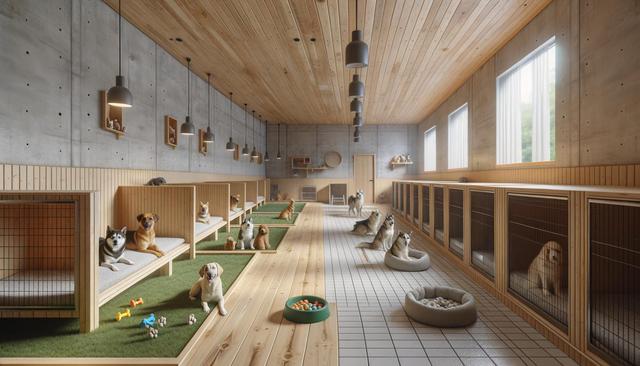The Heart Behind Small Dog Rescue Shelters
Small dog rescue shelters are built on compassion, dedication, and a firm belief that every dog deserves a loving home. These shelters are often run by nonprofit organizations, volunteers, or local communities who dedicate their time and resources to saving small dogs from neglect, abandonment, or overcrowded municipal shelters. The mission is simple: rescue, rehabilitate, and rehome. While the challenges are many, the rewards come in wagging tails and second chances.
Many of the dogs that come into these shelters arrive with histories of trauma or medical issues. Staff and volunteers work tirelessly to provide them with the care and attention they need. This includes:
- Medical treatment and vaccinations
- Behavioral assessments and training
- Socialization with other animals and people
- Proper nutrition and grooming
Each rescued dog is treated as an individual with unique needs and personality traits. This personalized approach helps ensure better adoption matches and long-term success in their new homes.
Why Focus on Small Dogs?
Small dog breeds often have different needs compared to larger breeds, and these differences make specialized shelters essential. They are more likely to suffer from dental issues, joint problems, and anxiety-related behaviors. In urban areas, where space is limited, small dogs are also more likely to be adopted, making their rescue and rehabilitation a priority for many shelters.
In some cases, small dogs are surrendered due to lifestyle changes, such as:
- Moving to a location that doesn’t allow pets
- Owner illness or death
- Financial hardship
- Behavioral challenges that were not addressed early
By focusing on small dogs, these shelters can tailor their facilities, staff training, and outreach programs to meet the specific needs of their canine residents. This increases the likelihood of successful adoptions and reduces the number of dogs returned or rehomed again.
Adoption Process and Community Involvement
The adoption process at a small dog rescue shelter is designed to be thorough yet accessible. It usually involves an application, a home visit, and several meet-and-greet sessions with the dog. This ensures that adopters are prepared for the responsibility and that the dog is a good fit for their lifestyle.
Shelters also rely heavily on community involvement to sustain their operations. Volunteers play an essential role in daily tasks, including:
- Walking and socializing dogs
- Cleaning and maintenance
- Assisting with events and fundraisers
- Helping with administrative tasks
Additionally, partnerships with local businesses, schools, and media outlets help raise awareness and encourage more adoptions. By fostering a sense of community, shelters not only improve the welfare of the dogs in their care but also educate the public about responsible pet ownership.
The Importance of Fostering and Donations
Foster care is a vital component of many small dog rescue shelters. Fosters provide temporary homes for dogs who might not thrive in a shelter environment due to stress, age, or medical needs. This allows the dogs to recover and adapt to a home setting, making them more adoptable. Fostering also frees up space in shelters, enabling them to rescue more dogs.
Donations are another cornerstone of shelter sustainability. Running a rescue operation involves significant costs, such as:
- Veterinary bills
- Food and supplies
- Facility maintenance
- Transportation and outreach
Many shelters offer multiple ways to donate, including one-time gifts, monthly sponsorships, or supply drives. Even small contributions can make a big impact when combined with community effort. Transparency in how funds are used encourages continued support and helps build trust with donors and adopters alike.
How to Support and Get Involved
There are many meaningful ways to support a small dog rescue shelter, whether you’re ready to adopt or simply want to contribute to their mission. Consider the following options:
- Adopt a dog and give them a forever home
- Become a foster parent to help dogs transition
- Volunteer your time and skills
- Donate funds or supplies
- Spread the word through social media or local events
Shelters often host adoption events, educational workshops, and fundraising campaigns that welcome community participation. These events are not only opportunities to find dogs new homes but also to build lasting relationships with supporters and advocates. Whether you’re a pet lover, a student looking for service hours, or someone who simply wants to make a difference, your involvement matters.
By stepping up and supporting a small dog rescue shelter, you contribute to a cycle of care, compassion, and change that benefits both dogs and people. Every effort, big or small, helps bring these animals one step closer to the life they deserve.






